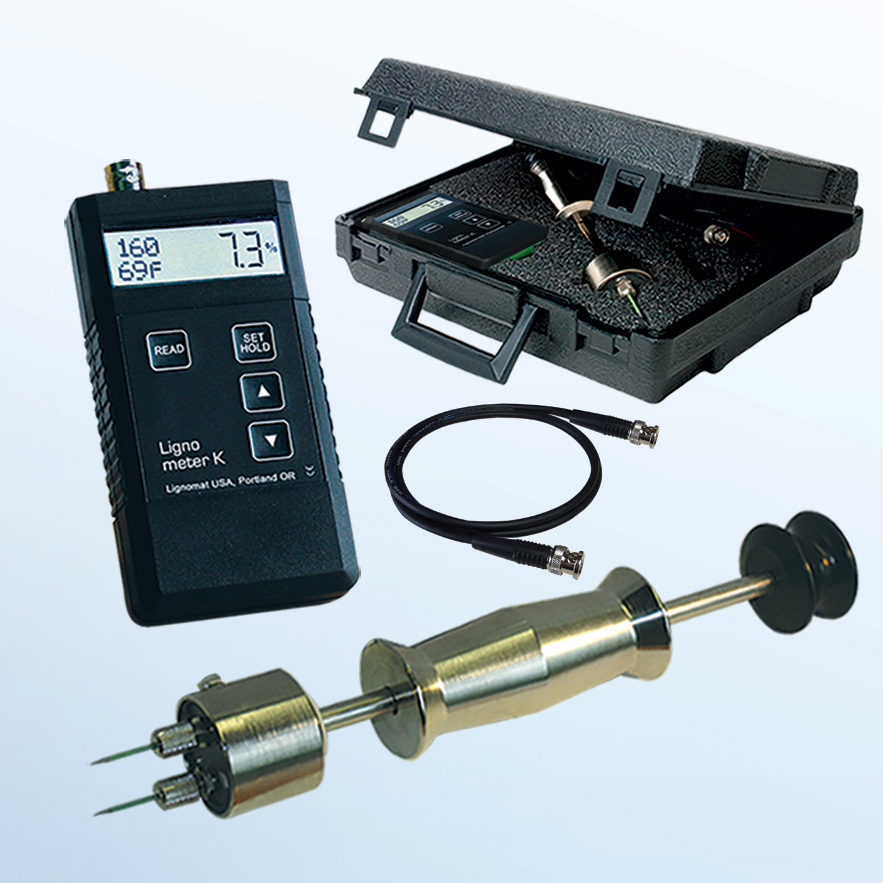Understanding the Different Types of Moisture Meters and Their Applications
Understanding the Different Types of Moisture Meters and Their Applications
Blog Article
The Ultimate Guide to Wetness Meters: A Comprehensive Review and How They Can Save You Money
In the world of structure maintenance, building and construction, and various industries, the importance of accurately determining wetness degrees can not be overstated. Wetness meters work as vital tools in discovering and checking moisture content in materials, assisting in preventing pricey damages and ensuring the high quality of items. Comprehending the nuances of different kinds of dampness meters, their applications, and the potential cost-saving benefits they supply can be a game-changer for professionals and companies alike. Finding exactly how these gadgets can not only enhance procedures however likewise add to financial savings is a trip worth getting started on.
Kinds of Moisture Meters
Various kinds of dampness meters are available for various applications in various markets. One usual kind is the pin-type moisture meter, which determines the electric resistance between 2 pins inserted into a material. This kind is suitable for timber, drywall, and other structure products. Pinless moisture meters, on the other hand, use electro-magnetic sensing unit plates to scan a bigger area without causing damage to the material's surface area. Moisture Meter. These meters are perfect for quickly evaluating dampness levels in large areas such as walls and floorings.

Moreover, there are also specialty wetness meters designed for details materials like grain, hay, or dirt. These meters supply exact moisture analyses tailored to the one-of-a-kind residential or commercial properties of the material being examined. Infrared wetness meters measure the thermal homes of a product to identify its dampness content non-invasively, making them useful for applications where pin or pinless meters might not appropriate. Recognizing the various kinds of dampness meters offered can aid markets select one of the most appropriate device for their certain wetness dimension requirements.

Benefits of Utilizing Dampness Meters
Dampness meters offer invaluable benefits in properly keeping an eye on and analyzing moisture levels in varied materials and environments. One of the key advantages of utilizing moisture meters is the avoidance of potential damages caused by excess wetness.
Furthermore, making use of dampness meters can lead to boosted energy efficiency. In agricultural settings, wetness meters play a crucial duty in enhancing crop yields by allowing farmers to keep an eye on dirt moisture levels and make notified irrigation decisions.
Exactly How to Select the Right Wetness Meter
Picking the proper dampness meter includes taking into consideration key aspects such as material compatibility, dimension array, and calibration accuracy. When selecting a dampness meter, it's necessary to make certain that the meter appropriates for the particular material you will certainly be screening. Different materials have varying electrical residential or commercial properties that can impact moisture analyses, so picking a meter created for your product is vital for exact results. Additionally, consider the dimension variety of the dampness meter. Guarantee that the meter can detect wetness degrees within the array needed for your applications. Calibration accuracy is one more important variable to remember. Choose a wetness meter with reliable calibration to guarantee regular and specific readings. Some meters may require regular hop over to these guys calibration adjustments, so understanding the calibration process is essential. By carefully evaluating these elements, you can pick a wetness meter that meets your needs and provides exact dampness measurements for your tasks.
Correct Techniques for Dampness Meter Use

Cost Savings Via Wetness Meter Applications
Exactly how can the tactical use of dampness meters lead to considerable price savings across various industries? In the farming market, wetness meters help in identifying the optimal time for gathering crops, avoiding excess or over-drying dampness that can influence the final product's top quality.
Similarly, in building and construction, dampness meters assist avoid expensive damages by discovering dampness degrees in structure materials, such as timber or concrete, which can result in architectural problems otherwise resolved immediately. By recognizing trouble locations beforehand, contractors can take restorative steps to stay clear of extensive fixings or replacements, eventually saving money and time.
In addition, in the food processing sector, moisture meters are vital for keeping an eye on product quality and guaranteeing compliance with safety regulations. By accurately measuring moisture web content in foodstuff, suppliers can avoid wasting, preserve quality, and minimize waste, leading to considerable cost financial savings. Generally, the strategic Discover More application of dampness meters is a valuable investment that can bring about considerable price decreases and enhanced performance throughout different sectors.
Verdict
To conclude, moisture meters are useful devices for determining and identifying dampness degrees in numerous products. By utilizing the appropriate wetness meter and following appropriate strategies, users can effectively prevent costly damages brought on by excess moisture. Buying a quality moisture meter can cause substantial cost financial savings in the future by identifying potential issues beforehand and making it possible for prompt remediation. Eventually, moisture meters are essential instruments for maintaining the stability and long life of structures and products.
Moisture meters serve as vital devices in spotting and keeping an eye on moisture web content in products, aiding in avoiding costly problems and making certain the high quality of items. Infrared wetness meters measure the thermal residential or commercial properties of a material to establish its moisture material non-invasively, making them useful for applications where pin or pinless meters might not be ideal.Moisture meters offer vital advantages in properly keeping an eye Discover More Here on and assessing wetness degrees in varied materials and settings. In agricultural setups, dampness meters play a critical duty in enhancing plant returns by enabling farmers to monitor dirt dampness levels and make educated irrigation decisions.In conclusion, wetness meters are valuable devices for determining and spotting dampness degrees in various materials.
Report this page